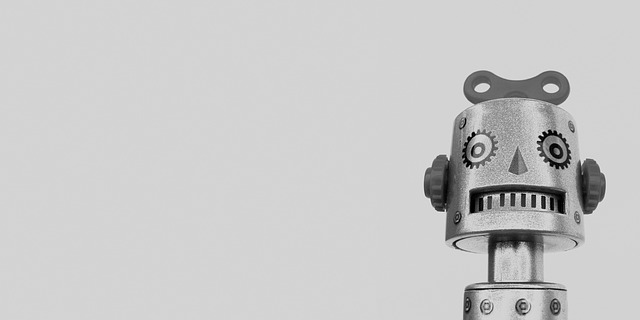
Revolutions are often violent and bloody affairs that leave swaths of destruction across vast societies that cry for change. The digital revolution however, is a different kind of beast. No one really died or was beaten to a bloody pulp per se, but scores of people from labor intensive industries either got laid off or transferred and replaced by robots.
Table of Contents
The Perfect Employee
Robots never get sick, never ask for a raise, never complain, never steal, never get paid overtime, never slack off and will never form unions. Robots are stronger, faster, tougher and more resilient than any human worker on the roster. When you think about it, robots are the epitome of the model employee – management’s dream come true.
Like it or not, robots, artificial intelligence and supercomputers are all part of the digital revolution, and they are slowly but surely taking over. A study by Oxford University and Deloitte reports that in the UK alone, 35% of the current jobs are at a high risk of computerization in the next 20 years.
In Australia, the job loss projection is over 40% in the next couple of decades. In 2013, there were 1.2 million industrial robots working around the world, and with computers getting faster chips that make them smarter than humans, it’s inevitable that in the near future, a large part of the population will have to learn a new skill or be out of a job.
How does your Job stack up?
Some people have it better than others. Just ask referees and umpires in the next 20 years, because their jobs have a 98.3% chance of being automated. You think referees got it bad? Telemarketers have a 99% chance of being automated, which is a scarier proposition because robots can make calls 24/7 and will be unfazed by angry customers.
This data was sourced from Oxford University’s Michael Osborne and Carl Frey, who came up with a guide using calculations on what jobs were most susceptible to automation based on nine important skills required to perform it:
- Social perceptiveness
- Negotiation
- Persuasion
- Assisting and caring for others
- Originality
- Fine arts
- Finger dexterity
- Manual dexterity
- The need to work in a cramped work space
Right off the bat, a number of human jobs can be taken over by robots who are more than likely to outperform the workers they replaced. In China, smartphone manufacturer Xiaomi has a state of the art, fully automated cell phone assembly line. There’s even a noodle slicing robot in Dazzling Noodles, an open-kitchen restaurant in Shanxi province.
Drivers, bookkeepers, mill workers, postal workers, tellers and most production line workers are among the jobs that are most likely to be automated, according to the researchers. The guide they made is rough, but it can give us an idea of what the future may look like if robots do take over.
Not so Fast
Even with all this job encroachment by machines, there will always be jobs that are somewhat safe from automation. Health & social workers, doctors, writers, designers and artists seem to be in the clear. Jobs that need human creativity, compassion, care and judgement will always be hard to replace.
The perfect example here would be translation. There are dozens of free translation tools you can use online. Some of them, such as Google Translate and Microsoft Translator, have become pretty accurate and can handle short words and phrases. While these free services are great for personal use, it would be a bad idea to use it for business.
Companies need fast professional document translation services for businesses, not free services that will more often than not, get word pairings and colloquialisms all wrong. Translating a document for business needs a human translator that’s more than a native speaker. This is where training and skill play a huge part.
See you (or not) in 20 years
If your job falls under the “most likely to be replaced by a robot” category, maybe it’s best if you learn another trade that’s future proof and will be in high demand for years to come. In the meantime, all we can do is wait for inevitable. Who knows? Maybe the digital revolution isn’t the last one and humans evolve to be better than robots. Only time will tell.
Want to know if your job is in jeopardy? Check it out here.

